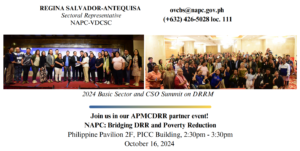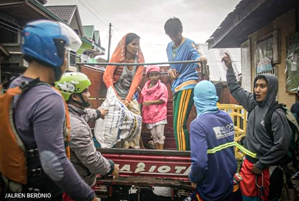Every August 12th, International Youth Day is being celebrated globally with the goal of emphasizing the active engagement of young people in any endeavor and their contributions to key themes such as in conflict resolution, social justice, education, employment, climate change, health and protection advocacy, youth development, and many more.
This year, the theme is “Transforming Food Systems: Youth Innovation for Human and Planetary Health”. The theme emphasizes the importance of inclusive support mechanisms to young people who proactively invested their efforts to safeguard the ecosystems and integrate biodiversity with the hopes to transform sustainable food systems.
The meaningful participation of young people bringing their fresh knowledge on sustainable growth is an effective solution to have more innovations that can address problems to the food systems. However, young people need allies and they have to be assured that they are included and involved in the entire process of designing and decision-making.
Thus, ECOWEB would like to recognize a group of young people who have placed their seat at the table in bringing out sustainable opportunities and inspiration for other youths to heighten their abilities in an entrepreneurial setting and enhance their critical and creative thinking through innovations.
This innovation has given them the spotlight in their locality that definitely transforms basic product to a healthier and more enhanced version. An indicator that transforming food systems in contribution for health and income generation is always a goal for them.
Young entrepreneurs and innovators
Being in a remote community where access to markets and business opportunities are limited is one of the difficulties in developing and innovating local community products. But, Alog Youth Association, a youth group in the Municipality of Tubaran, Lanao del Sur, challenged this notion.
‘Nitib a kapi’ is a localized and general word for the special native coffee in Lanao del Sur which has different kind of taste from the usual coffee that we have tasted in the urban areas. This inspired the group to give it a new taste that people of different ages and in different areas would love to drink and venture.
Asnoden Modiaba, 26 and one of the leaders of the group, enhanced their native coffee by incorporating ginger for health benefits. He spent his whole life surrounded by coffee trees and ginger on his family’s farm and in the community at large. But it was never an idea for him to innovate their traditional coffee production.
Until the Marawi Response Project was implemented in their area as part of improving the living conditions and strengthening social cohesion of the 2017 Marawi siege internally displaced persons and host communities. The project was funded by USAID, implemented by Plan International and in partnership with ECOWEB. Part of its component is youth empowerment which has valuable events like the conduct of capacity building trainings and providing opportunities for employment and innovation.
Asnoden and his co-leader, Norhamida Casim attended the ‘Facilitation Skills Training for Youth Innovation Challenge’ in Iligan City. This activity has opened Norhamida’s mind to propose a project about coffee as it is abundant in their municipality. This also gave them an idea to have their start-up business given that the project will provide them the necessary materials and equipment for its inception and development.
“Through this training, my co-leader and I initially conceptualized the project,” said Asnoden. “It was exciting and a dream come true for us as a community-based youth group to have that kind of training with other youth leaders from different municipalities where you can share your ideas and learn from theirs as well.” he added.
As one of the outcomes of the training, each youth group was given an opportunity to roll-out and facilitate the same activity in their respective communities. The Alog Youth Association facilitated a 2-day workshop with 26 youth from the community and as a result, their initial concept project was collaboratively enriched. These 26 trained youth were the pioneering and active members of the association.
“The participants of the [roll-out] training became the members of our group. They really have a big contribution and a great help in improving the project.” said Norhamida.
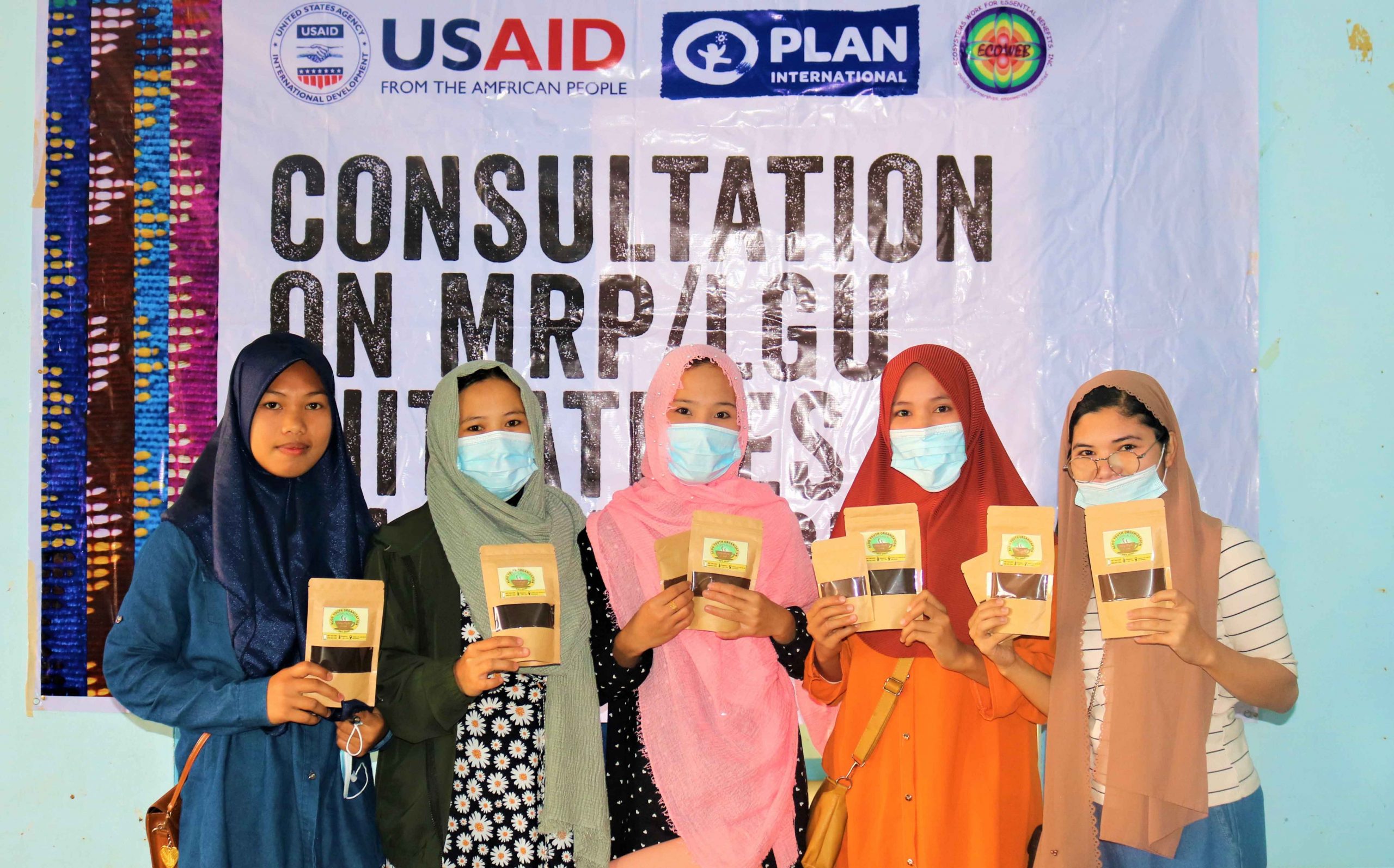
The project concept of the group was further enhanced during the ‘Hands-on Training and Mentoring on Project Presentation and Pitching’ activity. During the mentoring session with ECOWEB, the group conceptualized the project’s name “Khapi-Alog” – a Meranaw phrase which means two different concept: “Coffee of Alog” and “Something good about Alog”. The latter reflects the community’s profuse coffee production that can contribute a good impression about their small community.
“What we have in mind, we want our barangay to be known [in the entire proving] in a good way or great with something. For the reason that sometimes, our barangay is commonly associated with having a lot of armed conflict or extremism activities. So, this project aims to promote our community’s agricultural products in an innovative way. This is not just for our group but to also help our community especially our farmers.” said Asnoden.
From a single concept to reality
Alog Youth Association project ‘Khapi-Alog’ was presented during the culmination of the training in preparation for the Youth Summit activity that was conducted last March 2020. This summit invited all youth groups bringing with them their innovations and gave them an opportunity to display their prototypes.
This group’s long journey resulted to receiving an in-kind livelihood micro-grant last October 2020 during the Kapehan sa Iligan conducted by Iligan City Chamber of Commerce.
Alog Youth Association along with Aquila, another youth group in Marawi City, received the coffee production equipment and materials as a start-up capital for commencement of their project’s mass production in the community.
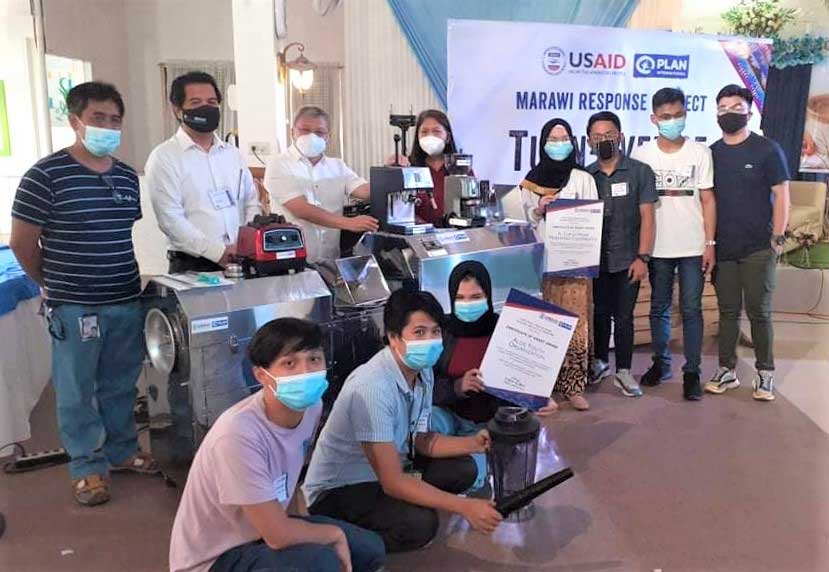
However, due to insufficient power supply in their community, the group was not able to fully operate immediately. As shared by the group, they need power regulator to boost the power supply in the community and be able to power up the heavy equipment for the production of their coffee products. Due to lack of financial sources, the group applied for the Department of Social Welfare and Development’s cash assistance thru the Sustainable Livelihood Program. If this will be approved, they will use the cash to purchase a power regulator that is very necessary in their operation.
As of now, the group has been producing the traditional native coffee that are being sold in their community and nearby markets like in Binidayan, Lanao del Sur. Through this initiative, the group was able to raise their sales and saved which lead them to purchas a sack of raw coffee beans from the farmers in the community for the next production.
Aside from their self-taught advertising and marketing techniques, the group also studied and undergo value chain orientation and trainings to sustain their production and increase their revenues.
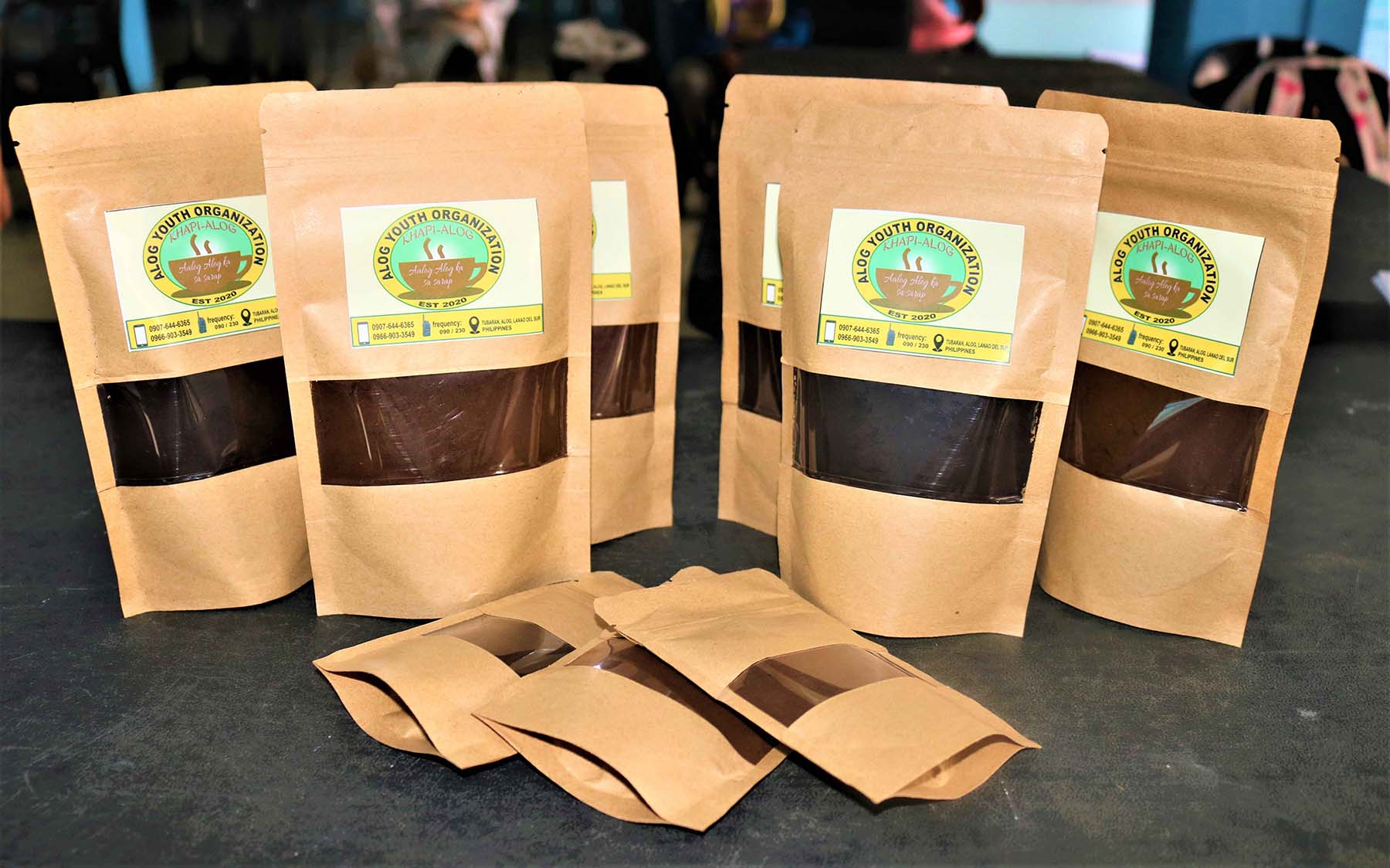
“While we wait for the cash assistance to be approved, we were able to start the production of our native coffee through the traditional process. But we are motivated that we can develop our products and make this as our statement.” expressed by one of the group members.
As said, the group aims to embed health benefits to a coffee by adding gingers which is also one of the agricultural products in the community. This innovation makes the group’s coffee production unique from others which they think is a hit especially to elders.
Indeed, young people can develop these talents by solving problems in their communities and ensuring that youth innovations for health and employment are something that should be recognized more by development entities. Young people have more sense of belongingness if they feel more involved and valued in by their community and people who entrust them to contribute something big – which is the ability to contribute to social cohesion, as one of the intermediate results of the response project.
Alog Youth Association is an example that in an entrepreneurial and collaborative innovation environment, they are not just beneficiaries but co-creators of solutions. They seek for more positive future opportunities and increased complacency that they have a place in making a difference.

